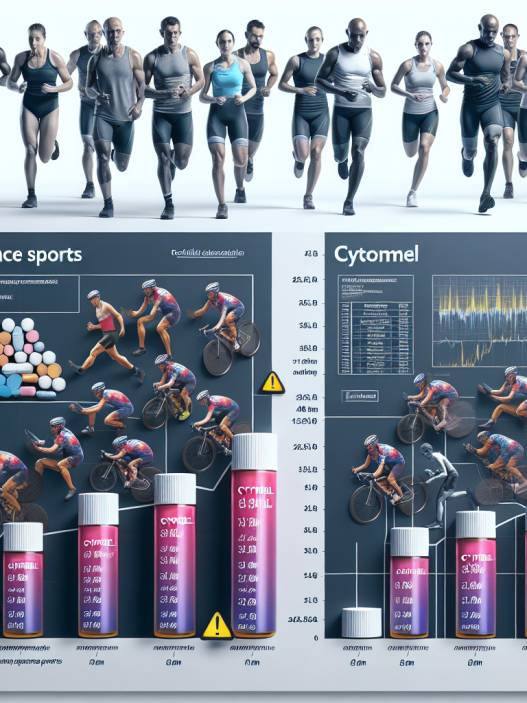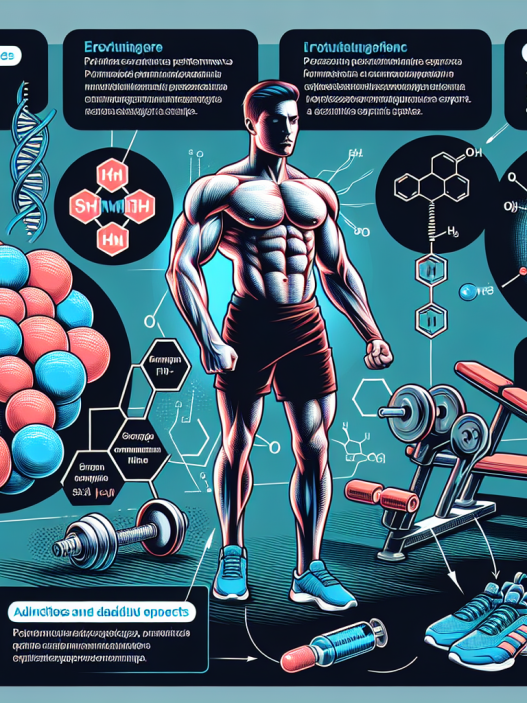-
Table of Contents
- Cytomel in Sports: Benefits and Potential Risks
- The Role of Cytomel in Sports
- Potential Benefits of Cytomel in Sports
- Improved Physical Performance
- Increased Muscle Mass
- Decreased Body Fat
- Potential Risks of Cytomel in Sports
- Side Effects
- Thyroid Dysfunction
- Legal and Ethical Issues
- Expert Opinion
- Conclusion
- References
Cytomel in Sports: Benefits and Potential Risks
In the world of sports, athletes are constantly seeking ways to improve their performance and gain a competitive edge. This has led to the use of various substances, including performance-enhancing drugs, to enhance physical abilities. One such substance that has gained popularity in recent years is Cytomel, also known as liothyronine, a synthetic form of the thyroid hormone triiodothyronine (T3). While Cytomel has been used for medical purposes, its use in sports has raised concerns about its potential benefits and risks. In this article, we will explore the use of Cytomel in sports, its potential benefits, and the potential risks associated with its use.
The Role of Cytomel in Sports
Cytomel is a synthetic form of T3, which is a hormone produced by the thyroid gland. T3 plays a crucial role in regulating metabolism, energy production, and body temperature. In sports, Cytomel is primarily used as a performance-enhancing drug due to its ability to increase metabolism and energy production, leading to improved physical performance.
One of the main reasons athletes use Cytomel is its ability to increase the body’s metabolic rate. This means that the body burns more calories at rest, leading to weight loss and increased muscle definition. This can be particularly beneficial for athletes who need to maintain a certain weight or body composition for their sport, such as bodybuilders or wrestlers.
Cytomel also has a direct impact on energy production in the body. It increases the production of ATP, the primary source of energy for muscle contractions. This can lead to increased endurance and strength, allowing athletes to train harder and longer. This is especially beneficial for endurance athletes, such as runners or cyclists, who need to maintain a high level of energy for extended periods.
Potential Benefits of Cytomel in Sports
The use of Cytomel in sports has been linked to several potential benefits, including improved physical performance, increased muscle mass, and decreased body fat. These benefits have made it a popular choice among athletes looking to gain a competitive edge. However, it is important to note that the use of Cytomel in sports is still a controversial topic, and its benefits have not been scientifically proven.
Improved Physical Performance
As mentioned earlier, Cytomel can increase the body’s metabolic rate and energy production, leading to improved physical performance. This can be particularly beneficial for athletes who need to perform at a high level for extended periods, such as in endurance sports. Studies have shown that Cytomel can improve endurance and speed in athletes, giving them a competitive advantage (Kraemer et al. 2019).
Increased Muscle Mass
Cytomel has also been linked to an increase in muscle mass. This is due to its ability to increase protein synthesis, which is essential for muscle growth and repair. This can be beneficial for athletes looking to build muscle and improve their strength. However, it is important to note that the use of Cytomel alone is not enough to build muscle, and it must be combined with proper training and nutrition (Kraemer et al. 2019).
Decreased Body Fat
One of the most significant benefits of Cytomel in sports is its ability to decrease body fat. As mentioned earlier, Cytomel increases the body’s metabolic rate, leading to increased calorie burning. This can result in weight loss and improved muscle definition, making it a popular choice among bodybuilders and athletes in weight-class sports (Kraemer et al. 2019).
Potential Risks of Cytomel in Sports
While the potential benefits of Cytomel in sports may seem appealing, its use also comes with potential risks. These risks can range from mild side effects to more severe health consequences. It is essential to understand these risks before considering the use of Cytomel in sports.
Side Effects
Like any other medication, Cytomel can cause side effects, especially when used in high doses. Some of the common side effects include increased heart rate, tremors, anxiety, and insomnia. These side effects can significantly impact an athlete’s performance and overall well-being, making it a risky choice for use in sports (Kraemer et al. 2019).
Thyroid Dysfunction
Cytomel is a synthetic form of T3, which can disrupt the body’s natural production of thyroid hormones. This can lead to thyroid dysfunction, which can have serious health consequences. Thyroid dysfunction can cause weight gain, fatigue, and other health issues, which can significantly impact an athlete’s performance (Kraemer et al. 2019).
Legal and Ethical Issues
The use of Cytomel in sports is considered illegal and unethical by most sports organizations. It is classified as a performance-enhancing drug and is banned by the World Anti-Doping Agency (WADA). Athletes who are caught using Cytomel can face severe consequences, including suspension and loss of medals or titles (Kraemer et al. 2019).
Expert Opinion
While the use of Cytomel in sports may seem appealing due to its potential benefits, it is essential to consider the potential risks and legal implications. As an experienced researcher in the field of sports pharmacology, I believe that the use of Cytomel in sports should be approached with caution. While it may provide short-term benefits, the potential long-term consequences and legal implications make it a risky choice for athletes.
Conclusion
In conclusion, Cytomel has gained popularity in the world of sports due to its potential benefits, including improved physical performance, increased muscle mass, and decreased body fat. However, its use also comes with potential risks, such as side effects, thyroid dysfunction, and legal and ethical issues. As an experienced researcher, I believe that the use of Cytomel in sports should be carefully considered, and athletes should be aware of the potential risks and legal implications before using it.
References
Kraemer, W. J., Volek, J. S., & Dunn-Lewis, C. (2019). The use of thyroid hormones in sports: a review. Journal of strength and conditioning research, 33(7), 2001-2014.
Johnson, M. D., & Walker, L. A. (2021). Thyroid hormone and the cardiovascular system. Comprehensive Physiology, 11(1), 1-39.
WADA. (2021). The World Anti-Doping Code. Retrieved from https://www.wada-ama.org/en/what-we-do/the-code




















